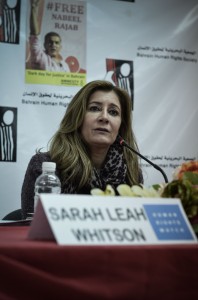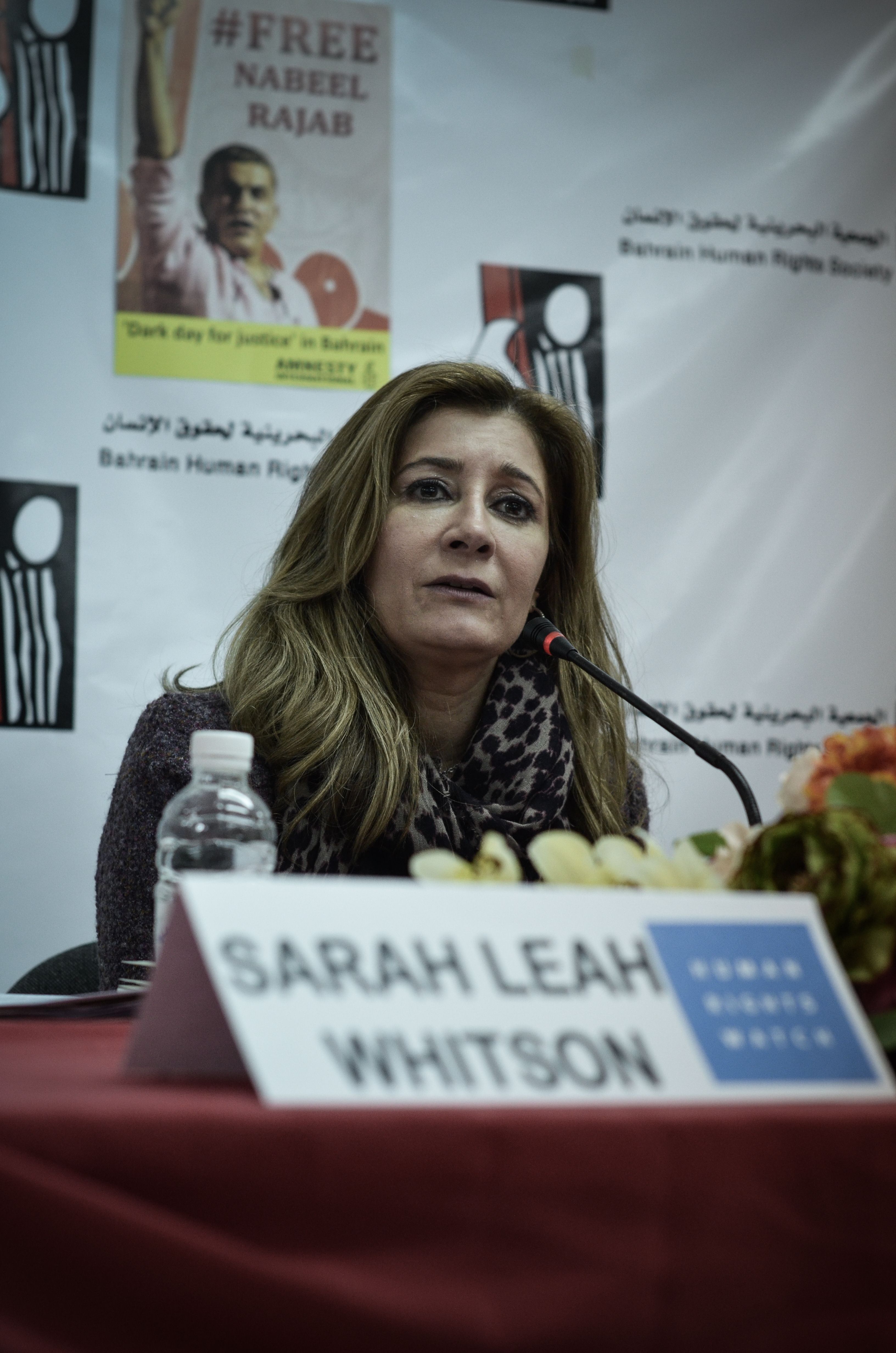
(AFP Photo)
Human Rights Watch published an article Monday evening in which the executive director of the Middle East and North Africa division, Sarah Leah Whitson, said there is a “disconnect between the public’s passionate demonstrations for freedom and their commitment to the legislative and institutional reforms needed to protect their rights against future abuses.”
Leah Whitson said despite the massive wave of popular protests across the Arab world demanding human rights, there still remains “little recognition among citizens that free speech and independent civil society are the bulwarks of freedom from tyranny.”
Leah Whitson highlighted Egypt as an example of this disconnect, saying while the current leadership has pledged to bring an end to several abusive practices, it has relied on similar restrictions imposed by the ousted President Hosni Mubarak in order to curb government critics.
One such old-regime practice the Muslim Brotherhood had themselves suffered from was the notorious Emergency Law, characterized by unfair trials and arbitrary detention. It is not surprising, then, that the new government allowed this law to expire. Their approach to freedom of speech, however, has not been as lenient.
The statement points out that the current constitution was approved by 60 percent of the voters, although only 30 percent of the electorate participated in the referendum. “The constitution includes a general commitment to protect freedom of ‘thought and opinion,’ but then bans ‘insults’ to individuals and prophets,” Leah Whitson said.
“This is no theoretical danger: President Mohamed Morsi’s government authorities over the past year have investigated or prosecuted at least 22 people for ‘insulting’ the president or the judiciary.”
The US on Monday also expressed worry at the growing trend toward silencing political critics in Egypt. According to a press briefing from the US State Department, the detainment of journalists, bloggers, activists and other individuals on charges such as insulting government officials does not “conform to Egypt’s international obligations,” and does not reflect international standards regarding freedom of expression and freedom of assembly. Furthermore, the US says it represents a step backward for Egypt’s democratic transition.
The US called on the Egyptian government to publicly speak out against this trend, saying it must protect “the essential freedoms of expression and assembly as it has publicly committed to do.”
“Again and Again,” Leah Whitson stressed, “in my decades of observation and meetings in the region, I have seen widespread support for limits on speech, not just in Egypt, but throughout the Middle East.” She continued by pointing out, “Many citizens from a wide cross-section of society see no contradiction between the right to speak critically of government officials (or their religion) and the ‘right’ of officials (and even institutions) to punish those who allegedly insult them.”
The executive director was also critical of Tunisia, where she says the draft constitution provides significant protection against torture and unlawful detention, but on the subject of free speech “the country is tied in knots.”
“The governments have used laws inherited from the deposed president, Zine El Abidine Ben Ali, to prosecute several people for speech deemed ‘immoral’ or ‘harmful to public order,’ such as sculptors and bloggers, but also for ‘impugning the reputation of the military,’” Leah Whitson said.
Leah Whitson explained that she believes much of the Arab public have little regard for international human rights laws which reject an insult as a legitimate limit on speech “because it can easily be used to stifle critics and opponents and to restrict the vigorous public debate that is essential for government accountability.”
“Even in countries like Morocco and Tunisia, where new constitutions broadly assert respect for free speech, the authorities continue to jail people for allegedly insulting or defaming the police or government officials.”
Leah Whitson argues the challenge currently facing human rights advocates is to persuade the public that “there can be no freedom without broad space for political speech, however obnoxious.”
“It’s far from certain, despite the sacrifices made for freedom during the Arab uprisings, that the public recognizes how important this issue is to their future.”


